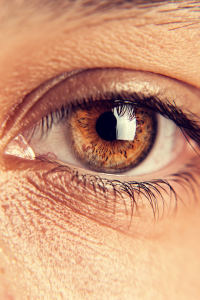-
See the Difference: Save $1,000 on LASIK , Find More
*Must mention this promotion and be treated before April 30 of 2025 to qualify. $1,000 off for both eyes on standard Wavelight price, $500 off for one eye. Cannot be combined with any other offers.
The Impact of Stress on Your Eyesight
 Stress, often considered an inevitable part of modern life, can manifest in various ways, affecting not only our mental well-being but also our physical health. One area where stress can take its toll is on our eyesight. In this article, we’ll explore the intricate relationship between stress and eye health, delve into the common eye problems exacerbated by stress, discuss the long-term consequences, and provide practical tips for managing stress to safeguard your vision.
Stress, often considered an inevitable part of modern life, can manifest in various ways, affecting not only our mental well-being but also our physical health. One area where stress can take its toll is on our eyesight. In this article, we’ll explore the intricate relationship between stress and eye health, delve into the common eye problems exacerbated by stress, discuss the long-term consequences, and provide practical tips for managing stress to safeguard your vision.
Stress and Its Effects on the Body
Before delving into the specifics of how stress affects our eyesight, it’s essential to understand what stress is and how it impacts the body. Stress is the body’s natural response to demands or threats, triggering a cascade of physiological changes aimed at helping us cope with challenging situations. However, prolonged, or chronic stress can have detrimental effects on our health, including our vision.
How Stress Affects the Eyes

When we experience stress, our body undergoes a series of physiological changes, such as increased heart rate and elevated cortisol levels. These changes can affect the eyes in several ways, leading to symptoms like eye strain, dry eyes, and blurry vision.
According to stress.org, constant and severe stress levels can lead to changes in the blood vessels of the eyes, resulting in vision problems. These changes can include blurred vision, difficulty focusing, and eye twitching.
Common Eye Problems Caused by Stress
Eye Strain and Fatigue
One of the most common complaints associated with prolonged screen time and stress is eye strain. Spending long hours staring at digital screens can cause muscles in the eyes to fatigue, resulting in discomfort and vision problems.
Dry Eyes
Stress can also contribute to the development of dry eyes, a condition characterized by insufficient tear production or poor tear quality. Symptoms may include itching, burning, and a gritty sensation in the eyes.
According to the American Academy of Ophthalmology (AAO), anxiety and stress can exacerbate dry eye symptoms by reducing the production of tears and increasing tear evaporation.
Blurry Vision
Stress-induced changes in blood flow and pupil dilation can lead to temporary episodes of blurry vision. While often transient, persistent blurriness may indicate underlying eye issues that require medical attention.
Long-term Impact of Stress on Vision
Chronic stress can exacerbate existing eye conditions such as glaucoma, macular degeneration, and diabetic retinopathy. Elevated stress levels may accelerate the progression of these diseases, leading to irreversible vision loss if left untreated.
For individuals already living with eye conditions, stress can worsen symptoms and diminish overall visual function. Managing stress effectively is paramount in preventing further deterioration of eye health.
Coping Mechanisms and Tips for Reducing Stress
Relaxation Techniques
 Incorporating relaxation techniques such as deep breathing, meditation, and yoga into daily routines can help alleviate stress and promote overall well-being. These practices not only benefit mental health but also contribute to better eye health.
Incorporating relaxation techniques such as deep breathing, meditation, and yoga into daily routines can help alleviate stress and promote overall well-being. These practices not only benefit mental health but also contribute to better eye health.
Proper Eye Care Practices
Practicing good eye hygiene, including taking regular breaks from screen time, maintaining proper lighting conditions, and staying hydrated, can alleviate strain on the eyes and mitigate the effects of stress.
The Role of Nutrition in Eye Health and Stress Management
Foods That Promote Healthy Eyesight

A balanced diet rich in antioxidants, vitamins, and minerals is essential for maintaining optimal eye health. Foods such as leafy greens, fatty fish, nuts, and citrus fruits provide nutrients that support vision and combat the effects of stress.
Dietary Supplements
In addition to dietary sources, certain supplements like omega-3 fatty acids, vitamin C, and zinc can bolster eye health and resilience against stress-related damage. However, it’s crucial to consult with a healthcare professional before starting any supplementation regimen.
Eye Exams

Regular eye exams are vital for detecting early signs of eye problems and monitoring changes in vision over time. If stress-related eye symptoms persist or worsen, Schedule comprehensive eye exams with an optometrist or ophthalmologist to ensure optimal eye health. They can offer personalized treatment plans and recommendations tailored to your specific needs.
Conclusion
In conclusion, stress can significantly impact your eyesight, leading to various visual disturbances and exacerbating existing eye conditions. By understanding the link between stress and eye health and adopting proactive measures to manage stress effectively, you can safeguard your vision and promote overall well-being.
YOU MIGHT ALSO LIKE...
VISION CENTERS NEAR ME
Enter your zip code, city, or a doctor name below to find a vision center.
Find out if LASIK is right for you
Congratulations!
Your vision issues can most likely be corrected with a LASIK procedure. Schedule a free consultation today.
Answer 5 simple questions to see if you are a candidate
What is your age group?
Do you wear...
With corrective lenses, do you have...
Have you ever been told that you have astigmatism?
Have you ever been told that you have dry eyes?
Request an Information Kit
Learn about your surgeon, the latest advanced technology, procedures, options and benefits, financing options, and what to expect from your LASIKPlus experience.









